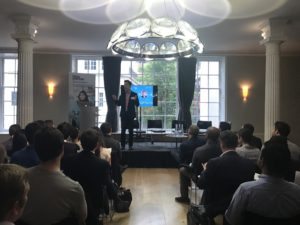Applications for Tech Nation’s Tier 1 Exceptional Talent Visa scheme more than quadrupled over the course of last year, Tech City UK has revealed. Speaking at the RSA ahead of a panel discussion focused on talent and the recruitment challenges faced by UK tech startups, the organisation’s Chief Operating Officer announced that Tech City UK had received over 380 applications for 2016-17, with more than 260 of these endorsed so far.
“The Tech Nation Visa scheme is going from strength to strength,” said MB Christie, addressing an audience of over 100, including potential applicants. “Demand continues to rise – we received almost five times as many applications last year as [we did] the year before.”
The Tech Nation Visa scheme is one of the entry options for exceptionally talented individuals from around the world, who want to apply to work in the UK, whose position as Europe’s digital capital was reaffirmed in the latest Tech Nation report.
The UK Home Office can issue up to 200 Tier 1 Exceptional Talent visas in digital technology annually, with Tech City UK having been named as the designated competent body for digital technology in 2014, with the ability to endorse applicants who bring outstanding capabilities to the UK tech sector.
The scheme was launched following feedback from digital companies who were struggling to recruit and retain talent from outside the EU – a situation, which has, if anything, become even more challenging. While Tech Nation 2017 found that the UK’s digital tech sector grew 50% faster than the wider economy in 2015, with tech jobs being created twice as quickly as those in non-digital industries, the report also uncovered evidence of a severe ‘talent gap’, with demand for highly skilled tech workers far outstripping supply.
“We surveyed founders, senior leaders, investors and other stakeholders in tech businesses up and down the country about the challenges they face, and when it comes to growing businesses, over 50% consistently highlighted a shortage of highly-skilled employees as a challenge,” said MB Christie. In addition, almost 25% described sourcing talent as a ‘major challenge’ in the report.
Mind the gap
The report also revealed that immigration is already playing a significant role in plugging this gap, with some 13% of jobs in the digital tech sector currently filled by international workers, according to ONS data. One company which has regularly turned to international talent is London-based e-commerce site Trouva. However, its cofounder and CTO, Alex Loizou told the Tech City event that hiring exceptional non-British talent wasn’t simply about meeting rising demand for highly skilled workers, but elevating the entire UK tech ecosystem instead – a necessity if the UK is to stay ahead of its rivals, such as Paris, Berlin, Stockholm and Amsterdam, post-Brexit.
“If you look specifically in data science and machine learning obviously there is talent in the UK,” he said. “But there’s also a lot of potential to bring in people from outside with experience and know-how — and if we’re able, as an ecosystem, to attract them to the UK, it will bring incremental benefits to the entire ecosystem. Therefore schemes [such as the Tech Nation Visa] that make it easier to attract those people will be a benefit for us all, not just us a company.”
Responding to comments that the number of visas available on the scheme are, relatively speaking, few and far between, fellow panellist Maria Palmieri, Government Relations Lead at Tech City UK, conceded that while the numbers “would never be in the thousands”, as by definition they were awarded to a limited number of outstanding individuals, the organisation is keen to see them rise.
“The numbers are quite low and we actually had to ask the Home Office for 50 more visas last year because we were going to hit our cap, which was quite revealing about the scheme and how popular it is,” she said. “There are definitely conversations which we are going to continue having with the Home Office that are about increasing the number [of visas] – although we can’t yet say to how many.”
Meanwhile, MB Christie pointed out that the scheme was “not just for software developers”, who account for ‘only’ about 30% of applications. “Business development, data science, product and marketing and other skills make up the bulk of the applications,” she said. “So this visa is about building businesses and not just about creating tech products.”
Case study:
Tom Yoritaka, Founder & Global MD, Cisco Entrepreneurs in Residence.
Tom arrived on a Tier 1 Exceptional Talent visa in January 2017.
“What does ‘exceptional talent’ mean? You don’t need to be the inventor of the next amazing thing in the world, but what it does mean is you have to be different. For most [people] this visa is within reach, but you have to know what your exceptional, unique talent is and you have to be able to tell that story to Tech City and the Home Office. You also need to have the evidence to support it. The more people who are known in the UK tech sector who you have endorsing and supporting you through recommendations and evidence, the better. Do you have a vision? What do you want to do in the UK tech sector if you get this visa? You have to articulate all of that. Yes, you’re special and unique, but how do you want to apply that to make the UK tech sector even better?”




